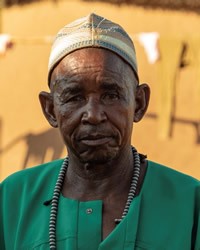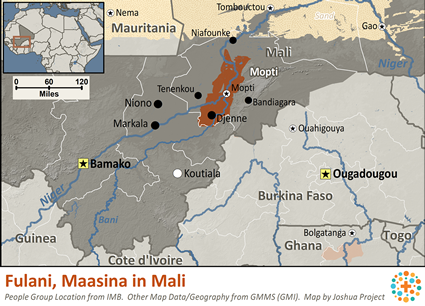The Fulani are the largest nomadic society in the world. The Maasina Fulani are located predominantly in the Maasina region of Mali. They are defined by their language, Maasina Fulani.
Their culture and lifestyle are virtually identical to those of other Fulani peoples in West Africa. Houses belonging to the settled Maasina are typically round with mud walls and thatched roofs.
They are strongly Sunni Muslim, but they blend Islam with animistic beliefs.
The identity of the Fulani tribes has long been tied to Islam. To follow Jesus as a Fulani is to risk cutting oneself off from family and friends--serious losses indeed.
Pray for workers because the harvest is ripening.
Pray teachers and materials would be sent to the few Christian believers among the Maasina Fulani to help them grow in Christ. They need prayer support.
Pray they would clearly understand the gospel of grace, not mixing it with the religion of good works.
Pray they would see the need to be obedient to Christ out of gratitude.
Pray the large Fulani tribes of West Africa would be able to care adequately for their families, that they would have sufficient rain for their livestock and crops.
Pray they would make schooling a priority for their children.
Pray for the widow and orphan, that they would be cared for by the community.
Scripture Prayers for the Fulani, Maasina in Mali.
| Profile Source: Joshua Project |


























